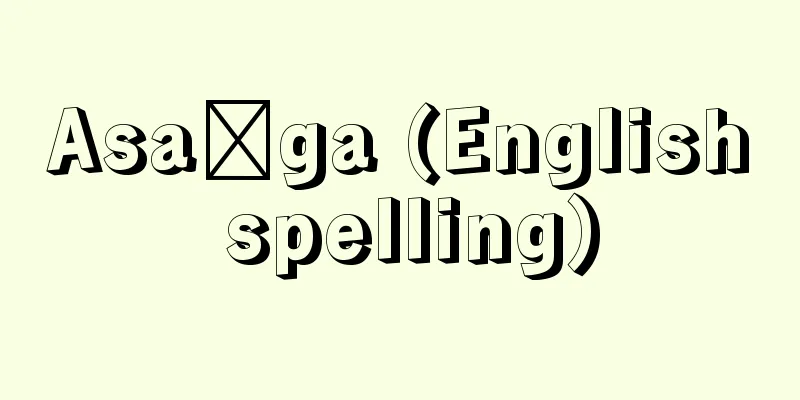School play - School play

|
A comprehensive educational activity that allows students to experience the joy of expressive and creative group activities and to share the results of their regular learning with each other. A special program, usually on a school-wide scale, is organized, mainly consisting of plays and choruses, and students of each grade or class compete against each other on the best performance. Since the Meiji period, it has been considered a representative school event along with athletic meets, and is also positioned as an arts and science event in the curriculum guidelines. In the past, elementary school cultural festivals were also called academic encouragement meetings or subject practice meetings, with the aim of letting parents and local people know about the current state of school education, and were often planned during the agricultural off-season for that purpose. Recently, they have gradually become more of an in-school event, and an increasing number of schools are holding them as part of farewell parties for graduates, etc. The number of performers has also changed from a trend of limiting the number of performers to a small number of students, to one in which all students share some role and can participate. In junior high and senior high schools, school arts festivals are becoming polarized into two types: those with specific themes, such as drama contests and chorus contests, and those that are incorporated into more comprehensive school-wide events, such as cultural festivals and school festivals. In addition, when planning and implementing these events, it is common to have close ties with student council activities and to be guided to operate them as independent group activities by students. [Jiro Inoue] [Reference] |Source: Shogakukan Encyclopedia Nipponica About Encyclopedia Nipponica Information | Legend |
|
児童・生徒に表現的、創造的な集団活動の楽しさを体験させるとともに、平素の学習の成果を相互に交流させることを目的に、通常は全校的な規模で、演劇や合唱などを主とする特別なプログラムを編成し、学年や学級単位にそのできばえを競い合う総合的な教育活動。明治時代以来、運動会と並ぶ代表的な学校行事とされ、学習指導要領のうえでも、学芸的行事のなかに位置づけられている。 小学校の学芸会は、古くは、保護者や地域の人々に学校教育の実情を知ってもらうことも一つのねらいで、学業奨励会、教科練習会ともいわれ、そのために農閑期などを選んで計画されることが多かった。最近では、しだいに校内的な行事の性格を強め、卒業生を送る会などの一環として実施する学校が増えつつある。出演者も、一部少数の児童に限る傾向から、全員がなんらかの役割を分担し、参加できるようなものへと変化してきている。 中学校や高等学校の学芸会は、演劇コンクールや合唱コンクールのように、種目を特定したうえで実施するものと、文化祭や学園祭のような、より包括的な全校行事のなかに組み入れて実施するものとに両極化しつつある。また、その計画と実施にあたっては、生徒会活動との連係を密接にして、生徒たちの自主的な集団活動の形で運営されるように指導するのが通常である。 [井上治郎] [参照項目] |出典 小学館 日本大百科全書(ニッポニカ)日本大百科全書(ニッポニカ)について 情報 | 凡例 |
<<: Music drama (Gakugeki) (English)
>>: Curator - gakugeiin (English spelling) curator
Recommend
Balakirev
Russian composer, pianist, and conductor. Also kno...
Isoage - Isoage
...Koromo-age is made in many different ways, wit...
Glycophospholipids
…it is a substance that is resistant to change in...
Xing-lun (English spelling)
A Chinese philosophical term. A debate on the ques...
Business History Review
...Its first professor, NSB Grass (1884-1956), es...
Niah Cave - Niah Cave (English spelling)
A cave site in the north of Sarawak, Borneo, Malay...
Stable fire - Umayakaji
Rakugo. A moral story from the Analects. Osaki, a...
Hanging fixture - Kakegu
…The type of bedding and equipment varies dependi...
Fish and rice town - Fish and rice town
…Population: 760,000 (1994). Located southeast of...
《Modern Shuten-doji》
...Kinpira Joruri, a famous old Joruri, features ...
Enuma Anu Enlil
…Records of the correspondence between the moveme...
Kaiseki Sada
A monk and nationalist in the early Meiji period....
homozygote
…the traits expressed on the surface of the zygot...
Coffea arabica (English spelling)
...The character "coffee" is used. [Cof...
Autumn Song - Akinokyoku
Koto music Recruitment Composed by Yoshizawa Keng...









